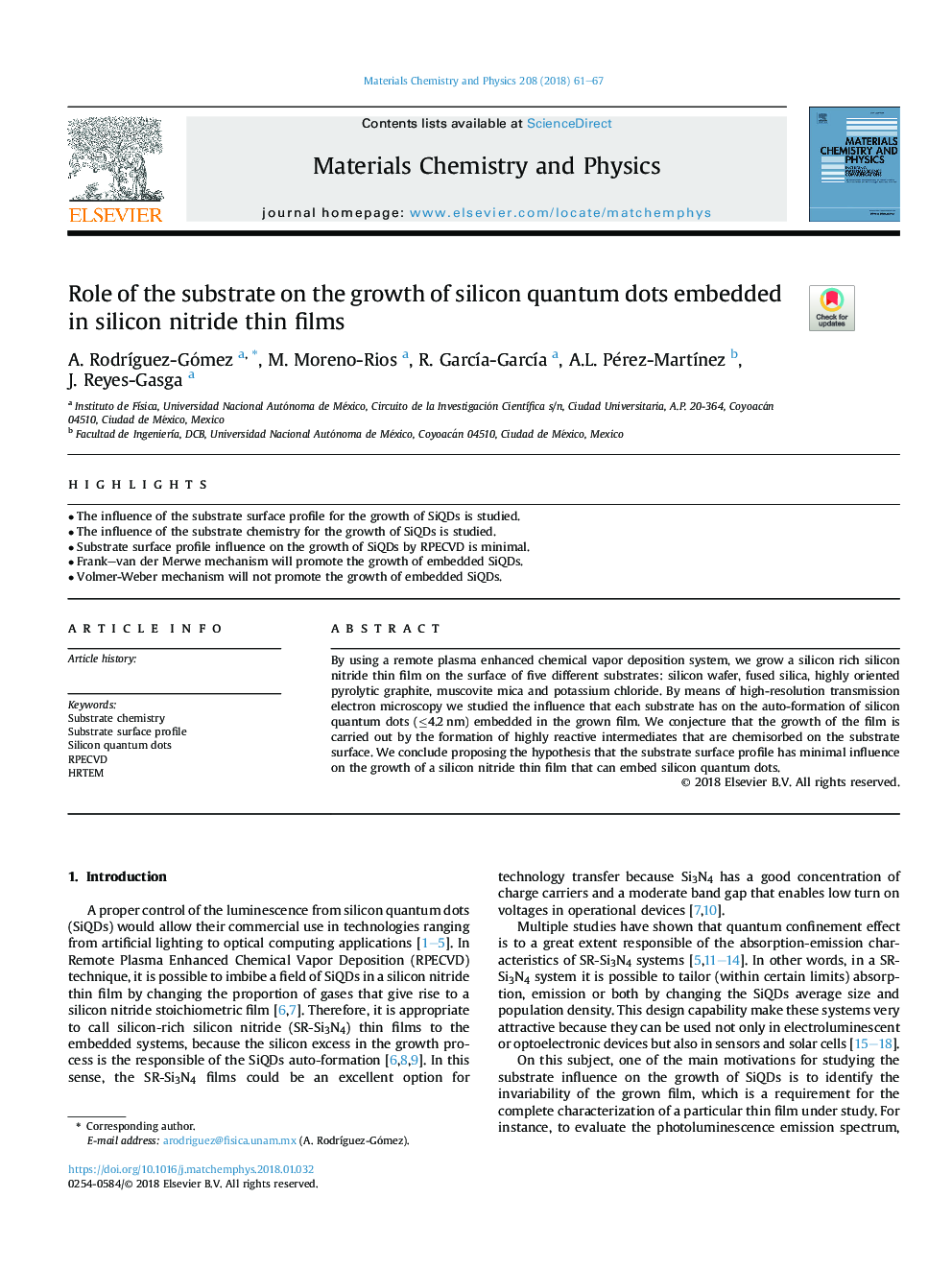| Article ID | Journal | Published Year | Pages | File Type |
|---|---|---|---|---|
| 7921918 | Materials Chemistry and Physics | 2018 | 7 Pages |
Abstract
By using a remote plasma enhanced chemical vapor deposition system, we grow a silicon rich silicon nitride thin film on the surface of five different substrates: silicon wafer, fused silica, highly oriented pyrolytic graphite, muscovite mica and potassium chloride. By means of high-resolution transmission electron microscopy we studied the influence that each substrate has on the auto-formation of silicon quantum dots (â¤4.2â¯nm) embedded in the grown film. We conjecture that the growth of the film is carried out by the formation of highly reactive intermediates that are chemisorbed on the substrate surface. We conclude proposing the hypothesis that the substrate surface profile has minimal influence on the growth of a silicon nitride thin film that can embed silicon quantum dots.
Keywords
Related Topics
Physical Sciences and Engineering
Materials Science
Electronic, Optical and Magnetic Materials
Authors
A. RodrÃguez-Gómez, M. Moreno-Rios, R. GarcÃa-GarcÃa, A.L. Pérez-MartÃnez, J. Reyes-Gasga,
